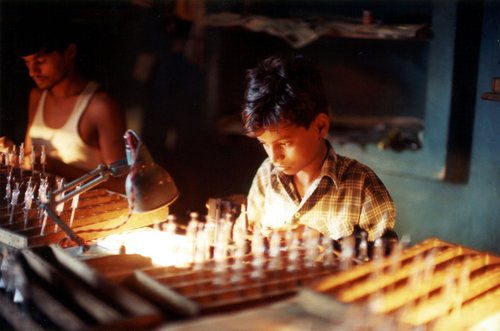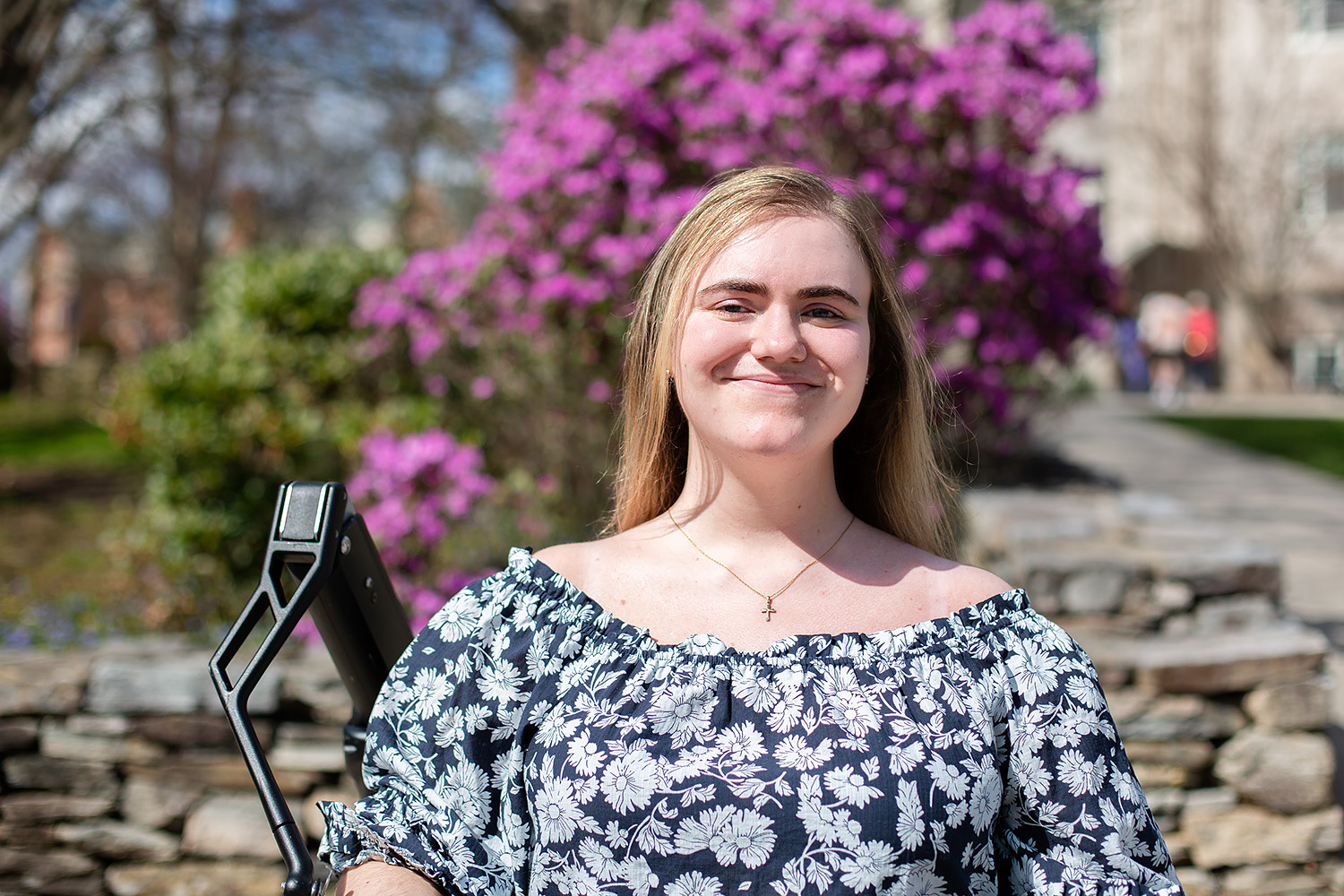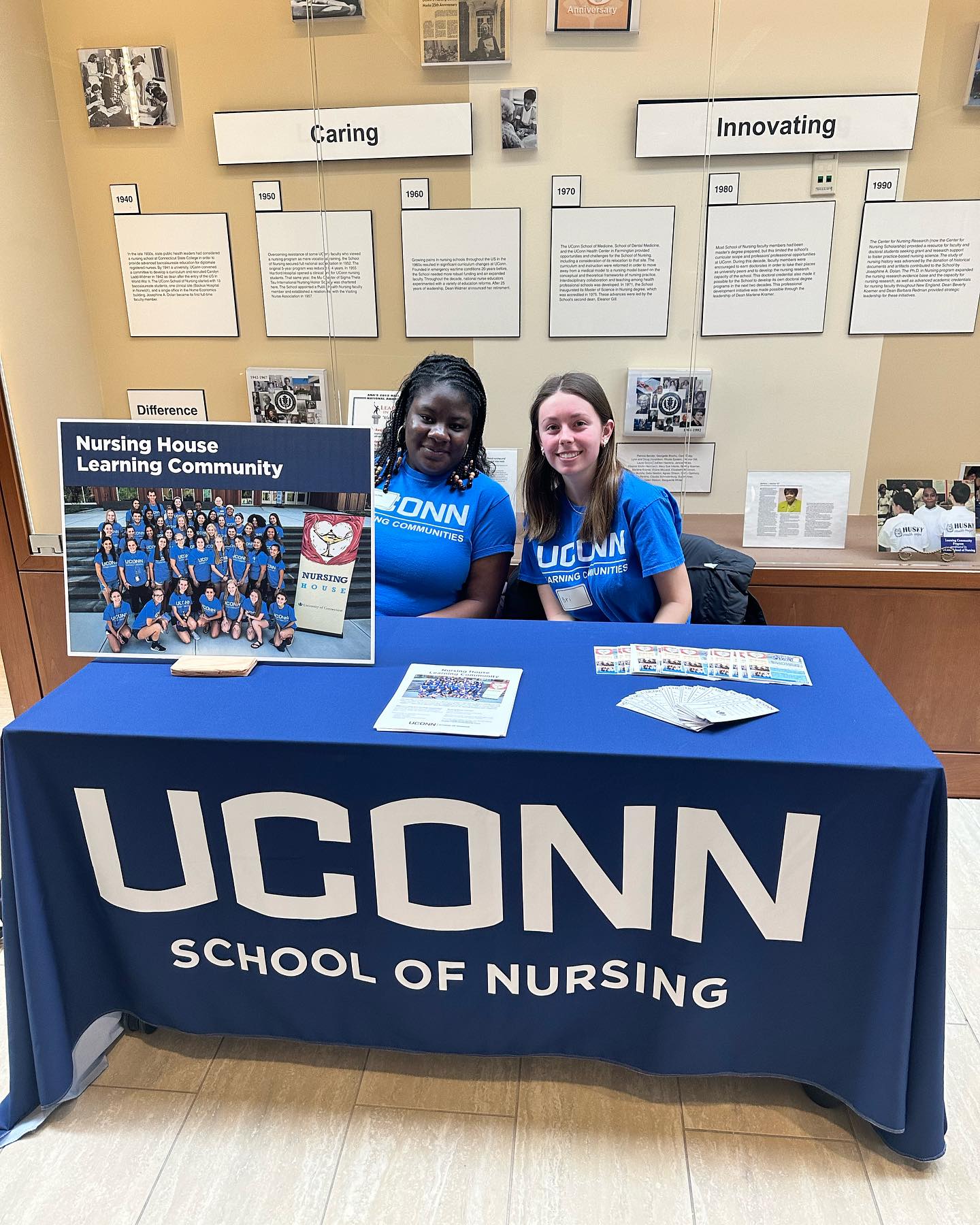Listen to the podcast:
For more podcasts about all things UConn, go to uconn.edu/uconn360-podcast.
When a white paper was issued earlier this year from a recent UConn conference addressing how to protect human rights and promote social and environmental sustainability in the light manufacturing sector, the document became the most recent addition to resources that help the 200 students pursuing either major or minor studies in human rights.
One of the classes these students can take is an interdisciplinary class, Assessment for Human Rights & Sustainability. Over the past four years, students in the class have examined how companies assess their global supply chains to ensure designs and business practices that promote positive social and economic development, while minimizing the environmental impact on the communities where they make products.
The class was developed by Shareen Hertel, an associate professor of political science with a joint appointment in the Human Rights Institute, and former UConn engineering professor Allison MacKay, who now is a professor and chair of civil, environmental, and geodetic engineering at Ohio State University. They continue to co-teach the class, which is offered again this semester, via live simulcast for students both in Storrs and in Columbus, Ohio.
Hertel says the idea for the class resulted from the interest she and MacKay shared in looking at how to assess the social and environmental sustainability of most products that people use.
“Allison and I were always looking for ways to collaborate,” she says. “Because I research in the area of supply chain management – Where do your shoes come from? Your morning cocoa? – and Allison works on fate of contaminants – How polluted is the world and how long will that pollution hang around? – we realized that we had an extraordinary area of mutual interest, which was looking at how we would assess social and environmental sustainability for the products that we use. The goal was to equip students to assess the readiness of companies to comply with both legal requirements and voluntary standards that go above and beyond what the law requires.”
Learning to listen is a big part of making an impact in this area. — Shareen Hertel
As an example of the benefits of bringing social sciences and engineering experts together for this purpose, Hertel says a company such as the athletic footwear and apparel manufacturer Reebok might send a mixed skills audit team to look at the fabrication of soccer balls in Pakistan and find child labor in that supply chain. The engineer on the team is not going to know what to do with that child, but the social scientist will, she says. Or if contaminants are found in the waste stream, it will be a challenge for the social scientist to measure the actual level of contamination, but the engineer will know what to do.
“The common goal of that production process should be social and environmental responsibility,” says Hertel. “How we arrive at that goal is inherently going to involve people with mixed skills in a conversation. Learning to work across those borders as an undergrad is extraordinarily advantageous.”
Going Above and Beyond
Moving multinational businesses toward corporate social responsibility policies began in 1971 with the efforts of clergyman and civil rights leader the Rev. Leon Sullivan, who was the first African American on the board of a major corporation when he joined the board of directors of General Motors. He developed the Sullivan Principles for American companies operating in South Africa under apartheid. Sullivan later worked with the United Nations to create a code of ethical conduct for multinational corporations, aimed at treating all workers equally around the world.
More recently, John Ruggie of the Harvard Kennedy School developed the United Nations Guiding Principles for Business and Human Rights adopted in 2011 by the UN Human Rights Council. Ruggie spoke at UConn in 2013 at an event hosted by the Thomas J. Dodd Research Center and UConn’s Human Rights Institute.
Hertel says the work started by Sullivan and Ruggie is an essential part of what students learn about business, human rights, and responsible business practice. Students follow the development of a new product from its design through its manufacture, distribution, and recycling, and then track how companies follow compliance guidelines for environmental concerns, treatment of workers by manufacturers, and the impact of the business on the local community.
“Our class equips students very much in the spirit of Sullivan or Ruggie at going above and beyond the minimum threshold for doing well by doing good,” says Hertel. “We’re looking at how to bring a whole new set of actors into this conversation around social responsibility, corporate social responsibility, business, and human rights. Typically, a lot of the conversation in that area has been in the domain of law, so colleagues in the School of Law or the School of Business would have been the natural go-to colleagues. But engineers are intimately involved in the design, fabrication, manufacturing, production, and end use. Part of what is exciting for me about doing this work now with colleagues in engineering is you’re bringing in a whole new set of actors into this conversation around responsible business practices.”
Everyone in the class is a consumer, so we’re giving them more choices. They’ve got the skill set to do that. — Allison MacKay
Students enrolled in Assessment for Human Rights & Sustainability are from a wide range of disciplines, ranging from various fields of engineering – mechanical, civil, environmental, manufacturing, etc. – as well as an array of the humanities, social sciences, and natural sciences.
“What’s been extraordinary has been watching the dynamism of these groups of students who have never worked either across divides within the social sciences and humanities and engineering or even across sub-fields in engineering,” Hertel says. “We intentionally set up groups to do company audits, assessments of company practices.”
MacKay says undergraduate engineering students who have been attracted to the class because of an interest in sustainability begin to think about those issues within the context of their future work as they learn about companies they study. During the semester, students send her links to news stories.
“They’re clearly thinking about things outside the classroom. That’s been a great experience as an instructor,” MacKay says. “The students ultimately work as a group to see how a company stands. They can be quite critical at that point. Some had chosen a company because they knew somebody who worked there or were enamored of a product, but their thinking changes sometimes. Everyone in the class is a consumer, so we’re giving them more choices. They’ve got the skill set to do that right now.”
Real World Data
The audit and assessment of business practices is not a hypothetical exercise. Students use data from the Business and Human Rights Resource Centre, an independent, London-based nonprofit organization with researchers around the world focused on advancing human rights in business. The group’s database includes reports on the human rights records of more than 7,000 companies written by both the companies and civic groups. The information is available free of charge online. It is the same information source Hertel utilized for her forthcoming book Tethered Fates: Companies, Communities and Rights at Stake, scheduled for publication next year by Oxford University Press.
Hertel’s research also took her to the Dominican Republic, where apparel and other UConn-branded products are made and where she spoke with local workers and members of the community, seeking ideas on how companies can fulfill human rights and sustainability goals.
“Some of the best ideas for ways that the community could benefit from the business being there even indirectly were generated by folks who lived in the shadow of the factory but didn’t work there,” she says. Some of the ideas included using load-sharing solar panels to replace poor power infrastructure to supply electricity to factories to also generate electricity for a community center, or creating a footbridge across a five-lane highway for workers to use as they go to work that also could be used by the rest of the community for safe travel.
“This idea of social and environmental sustainability was really well articulated by folks with modest education and often very humble means in extremely profound and sophisticated ways,” adds Hertel. “Learning to listen is a big part of making an impact in this area.”



